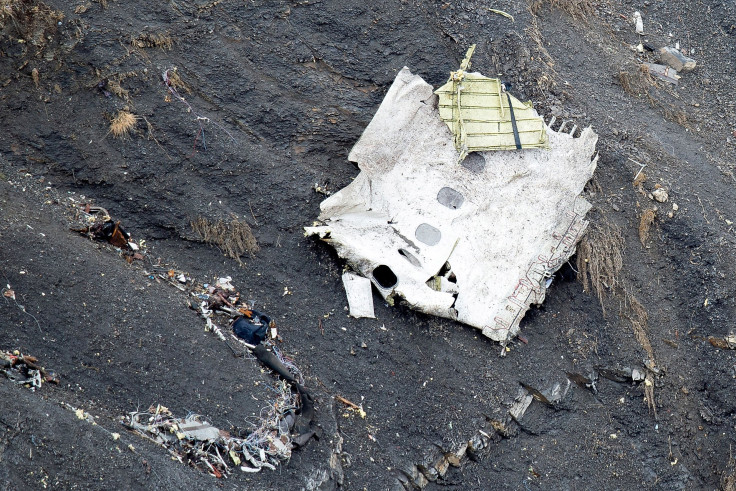Germanwings Pilot Allegedly Intended To Crash Plane: 'Refused To Open Door'

Investigators alleged Thursday that a Germanwings pilot intentionally took down a plane carrying 149 other people over the French Alps on Tuesday. The pilot, who was German, was breathing normally after he reportedly locked his co-pilot out of the cabin and lowered the plane into the mountains to certain death. He did not speak during the descent, according to recordings.
“He had no reason to disable contact with other planes,” said Marseille, France, Prosecutor Brice Robin, who is overseeing the criminal investigation. “We could hear the cries minutes before the plane crashed. ... The intention was to destroy this plane."
A New York Times report late Wednesday indicated the pilot in the Germanwings Flight 9525 crash on Tuesday was banging on the cockpit door after he was locked out by the other pilot. The Germanwings flight took off from Barcelona, Spain, and was headed to Dusseldorf, Germany, when it started to rapidly descend before crashing in the French Alps. All 150 people on board, including 144 passengers and six crew, died in the crash.
The most recent plane crash deemed to be caused by pilot suicide was in November 2013, when a LAM Mozambique Airlines plane en route to Angola started to rapidly descend about 90 minutes into the flight, according to Aviation Safety Network, which tracks plane accidents and incidents. Minutes before the crash in a national park in Zimbabwe, the co-pilot used the restroom. During that time, the plane's autopilot function was disengaged and the pilot manually entered the maximum airspeed allowed on the plane. On the cockpit voice recorder, "sounds were heard of someone pounding on the cockpit door,” according to the website. Investigators never determined what the cause of the suicide was, but there were reports that the pilot’s son had died a year before the crash and the pilot had “serious marital problems.”
Before that incident, the last crash caused by pilot suicide was that of Egyptair Flight 990 in October 1999, which is the third-largest accident in aviation history in terms of casualties. The Boeing 767 took off from New York City and was destined for Cairo. About an hour into the flight, the pilot went to the restroom. The relief first officer, who took over after encouraging the first officer to go to the restroom, muttered “I rely on God.” The flight data recorder didn’t reveal any signs that the plane was acting in a way that explained the relief first officer’s comment, according to Aviation Safety Network. Seconds later, the autopilot was disconnected and the plane started a rapid descent. The relief first officer was heard saying “I rely on God” seven more times as the plane went into a nosedive into the Atlantic Ocean. The National Transportation Safety Board said the crash was probably caused by “the airplane's departure from normal cruise flight and subsequent impact with the Atlantic Ocean as a result of the relief first officer's flight control inputs. The reason for the relief first officer's actions was not determined."
© Copyright IBTimes 2024. All rights reserved.












